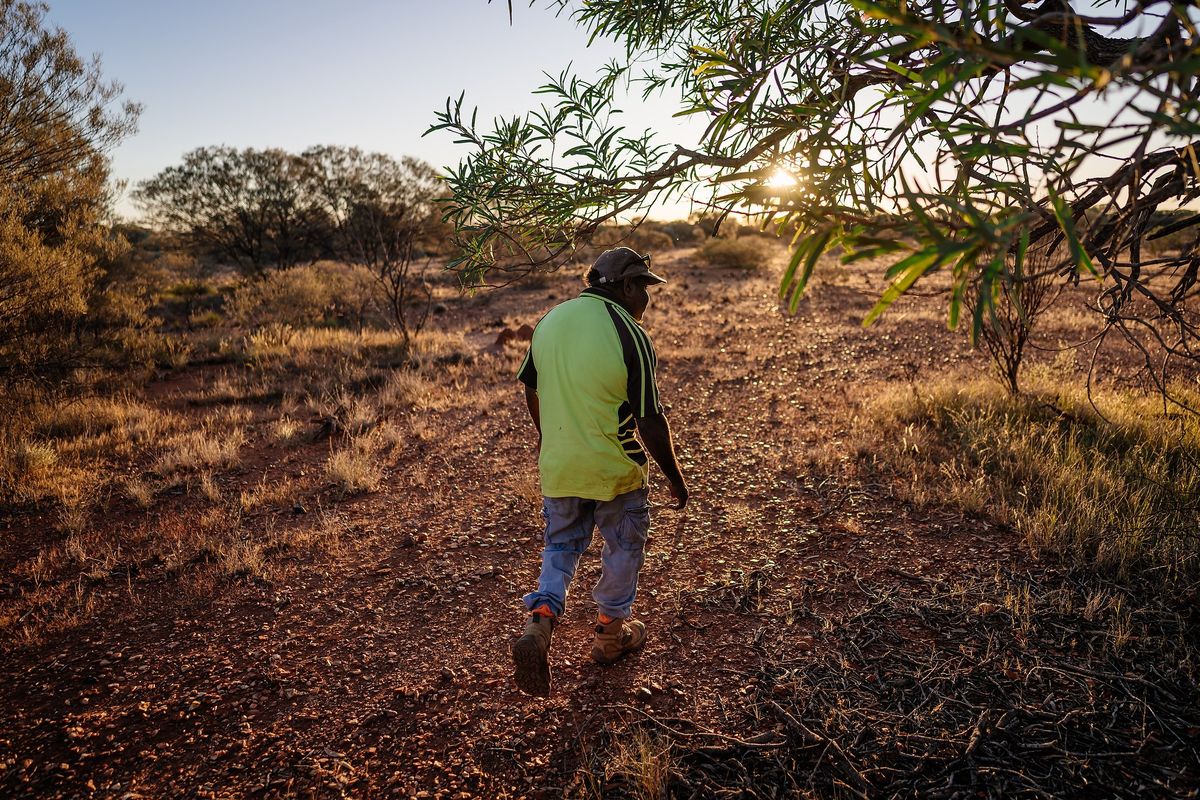Walking Alongside Martu: A journey with one of the world’s oldest living cultures
Pura’s inaugural impact collection honors both sacred traditions and sustainable futures.
In a world driven by speed, efficiency, and immediate results, it’s easy to forget that lasting change is built on trust. Real impact doesn’t come from rushing toward an end goal or measuring success through lofty metrics. It comes from falling in love with the problem, building a community around it, and sharing a vision for lasting transformation.
Pura, the smart home fragrance company that marries premium fragrance with innovative technology, recently launched its inaugural impact collection with K Farmer Dutjahn Foundation (KFDF) and Dutjahn Sandalwood Oils (DSO). The Pura x Dutjahn partnership began with a clear purpose: to source a sacred ingredient directly from its origin while honoring the land and the people who’ve cared for it. Our goal wasn’t simply to find sandalwood — it was to find a community and an ingredient that embody exceptional land stewardship, ethical harvesting, and transformative, community-led impact. After careful research and over three years of development, we saw an opportunity to secure a premium, luxurious ingredient while supporting a regenerative supply chain that invests in Indigenous-led education, economic opportunity, and land stewardship.

Over the past several years, we’ve walked alongside Martu, an Indigenous tribe from the vast Western Australian desert. Martu are one of the oldest living cultures in the world, with a history spanning 60,000 years. As nomadic hunter-gatherers, they have unparalleled ecological knowledge, passed down through generations, making them the traditional custodians of the land. Their approach to sandalwood harvesting isn’t driven by market demand but by a deep respect for seasonal rhythms, land health, and cultural law. Their work adapts to the environment—whether it’s “sorry time,” when mourning pauses activities, or the harsh desert conditions that make travel and communication difficult. Martu operate on Martu time, a deliberate rhythm shaped by millennia of experience, far removed from the rapid-swipe, hyper-productive pace of Western systems.
Martu’s ecological knowledge isn’t documented in baseline reports. It’s lived, carried in stories, and practiced with rigor and respect for the changing needs of the ecosystems. True partnership means unlearning the typical approach. It means standing beside—not in front—and recognizing that the wisdom and leadership we need already exist within these communities. Our role isn’t to define the work, but to support it, protect it, and learn from it.

Tonight, as I spoke with Chairman Clinton Farmer and the KFDF team about our focus for this piece, I learned that Clinton’s truck had broken down (again), leaving him to “limp” back to town from the desert at low speeds for hours and hours. He had been awake since 3:00 a.m. This is a common and costly setback, one that disrupts the harvest, demands days of driving, and brings real financial and emotional strain. These barriers are relentless and persistent, part of the harsh reality Clinton and his community face daily. It's easy for outsiders, detached from the reality on the ground, to impose rules, regulations, and demands from afar. Rather than continuing to impose, we need to truly partner with communities — equipping them with the resources to operate sustainably, avoid burnout, and protect the very land they love and care for. All while they endeavor to share these incredible, sacred ingredients with the world and build an economic engine for their people.
There is much to learn, but we are here to listen, adapt, and stay the course. The future we need will not be built in quarterly cycles. It will be built in trust, over time, together.
To learn more about the partnership and fragrances, visit Pura x Dutjahn.

